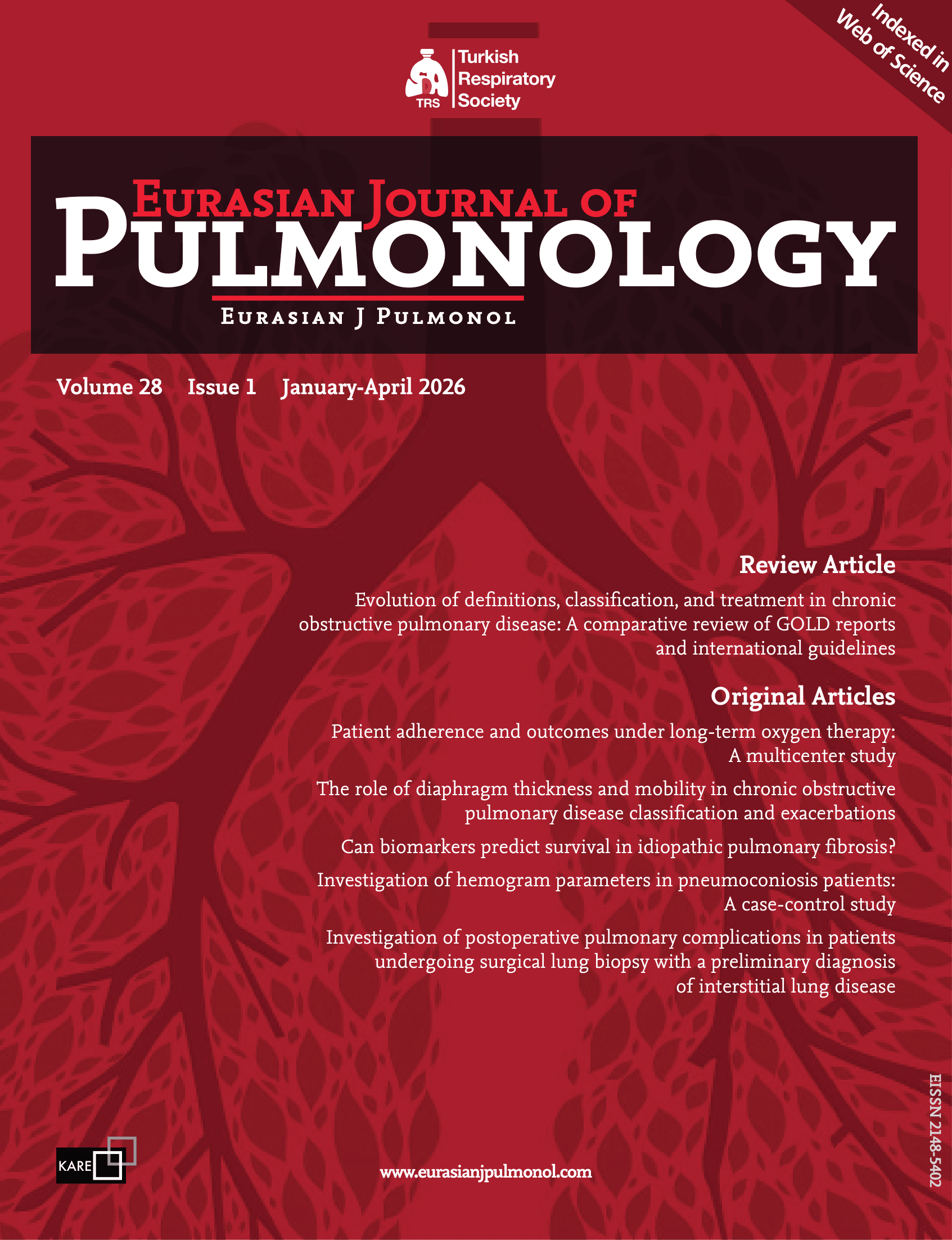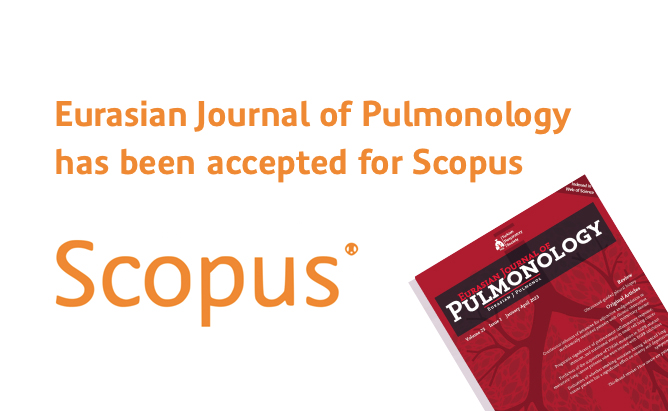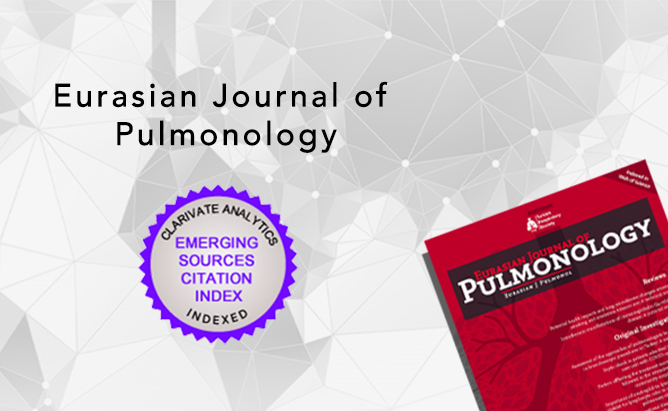Abstract
INTRODUCTION: Idiopathic pulmonary fibrosis (IPF) is a progressive lung disease associated with poor prognosis. Antifibrotic drugs have come into use in the treatment of IPF, for which no effective therapeutic option existed until recently. This study makes an evaluation of IPF patients receiving pirfenidone or nintedanib as treatment.
MATERIALS AND METHODS: This retrospective study included IPF patients who received antifibrotic therapy in our outpatient clinic between 2017 and 2020. The demographics, clinical symptoms, spirometric results, modified Medical Research Council (mMRC) and Leicester Cough Questionnaire (LCQ) scores, drug-related side effects, and treatment responses (at 6 months) were recorded.
RESULTS: There were 52 patients (32:male-61.5% and 20:female-38.5%) with mean age of 70.65 ± 9.18. The most common presenting symptoms were dyspnea (86.5%) and cough (61.5%). The patients received pirfenidone (n = 31) and nintedanib (n = 21) therapies. The rate of side effects was 53.1%. At the 6-month control examination, 66% of the patients reported symptom relief. No significant difference was found in clinical symptoms, mMRC, respiratory parameters, or occurrence of side effects between the two treatment groups (P = 0.936, 0.393, 0.124, and 0.962, respectively). There was a stastistically significant improvement at LCQ score in patients treated with pirfenidone (P < 0.01). At the 6th month of the treatment process, there was a statistically significant improvement in the mMRC, LCQ scores, and forced vital capacity level (P < 0.01 all).
CONCLUSION: The outcomes of antifibrotic therapy in IPF are particularly promising in terms of relieving clinical symptoms and the preservation of lung capacity. IPF patients receiving pirfenidone as a treatment seems to have a significant improvement in cough-related health quality.




 Onur Turan1
Onur Turan1 




